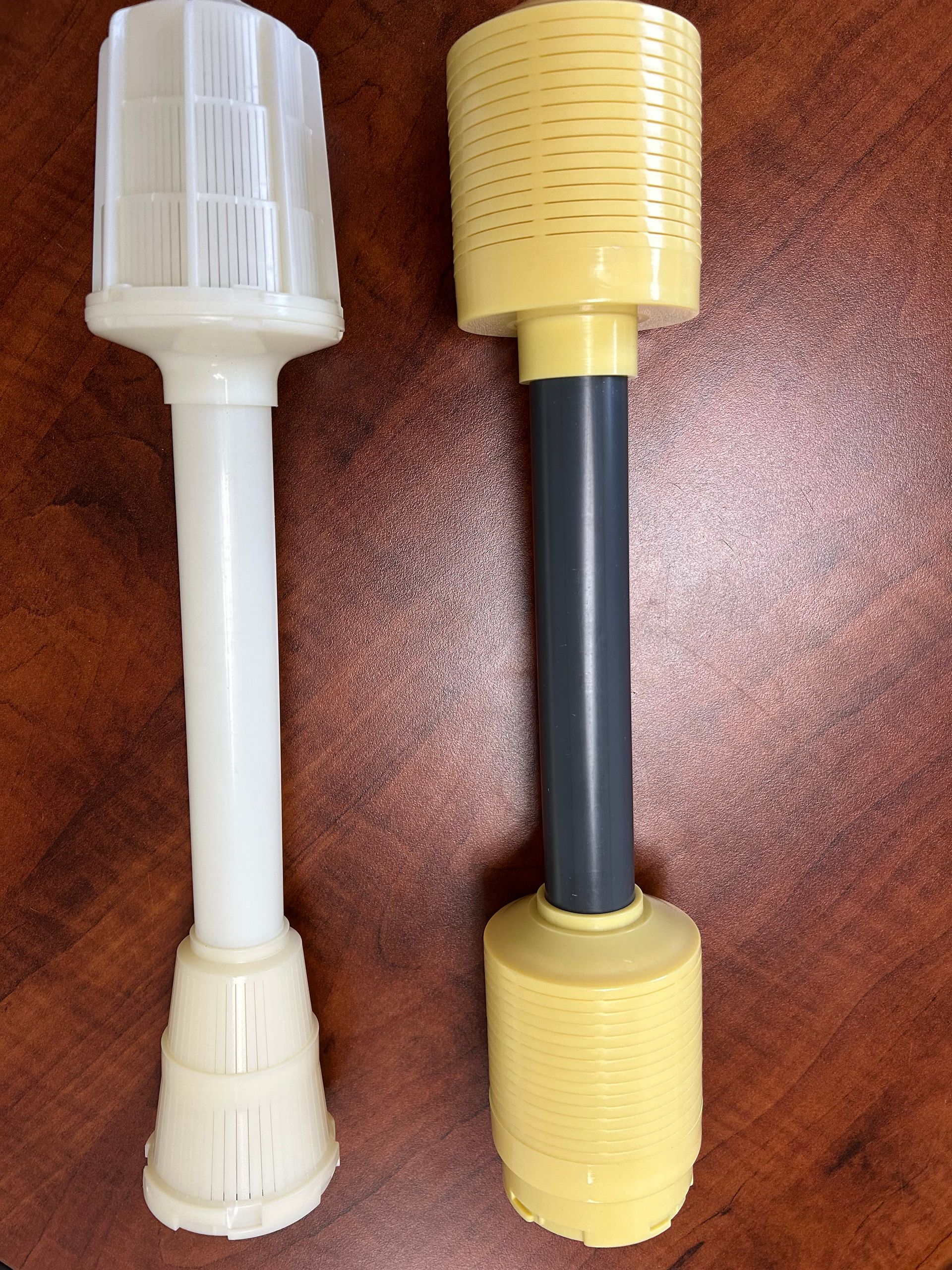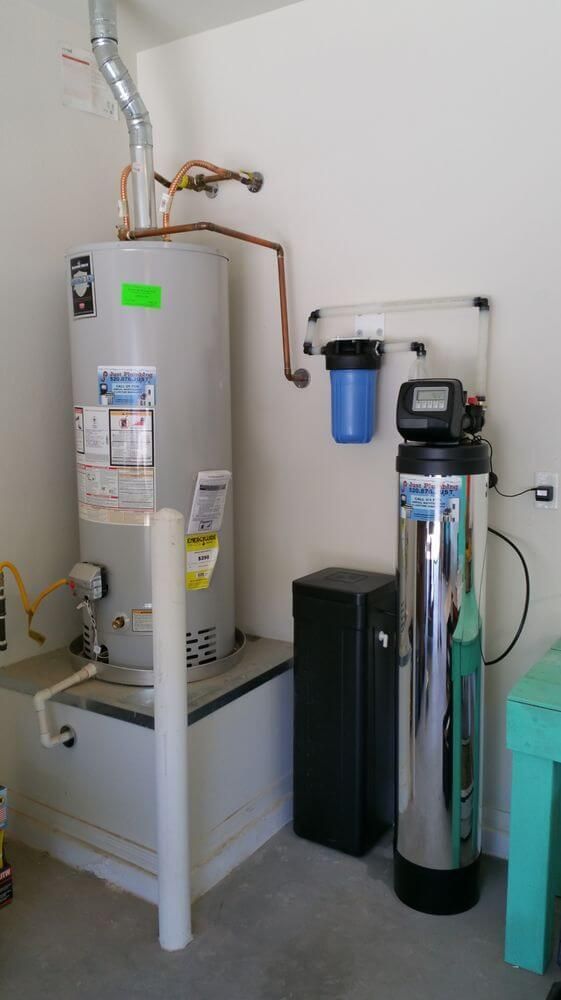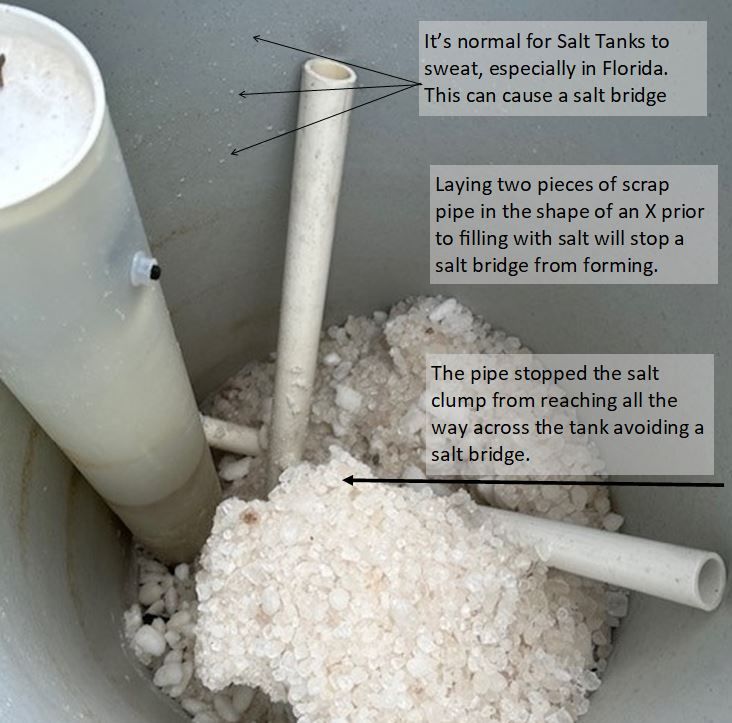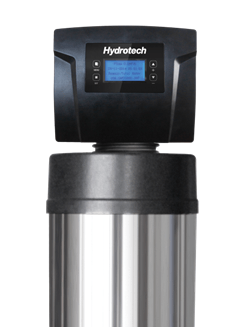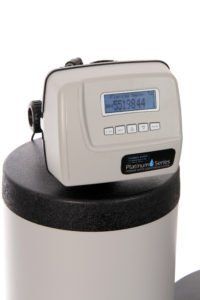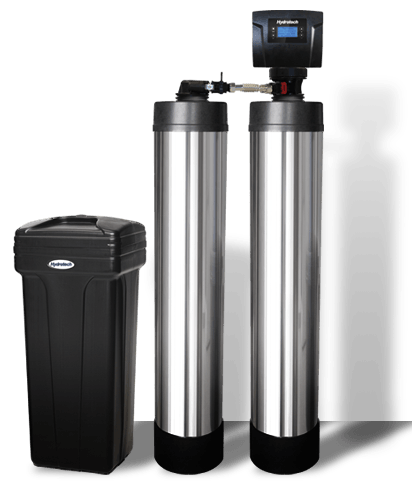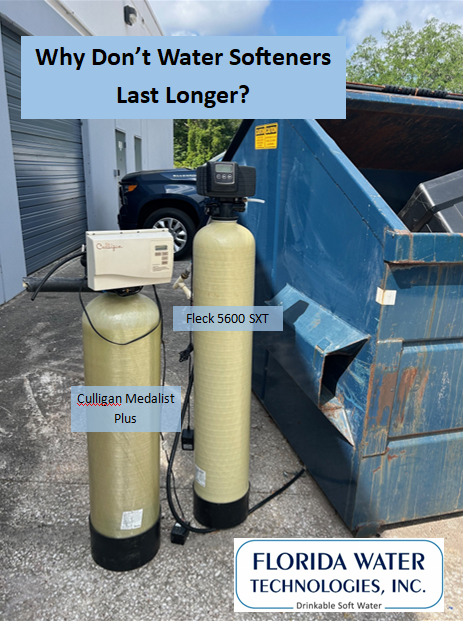There is a lot to be said about Jacksonville’s hard water supply and in this segment, we will look at; why use a water softener in Jacksonville FL, what kinds of water softeners in Jacksonville FL exist and how they differ.
North East Florida sits atop a huge mineral deposit made primarily of limestone. Water is the universal solvent and can dissolve almost anything including limestone which consists of calcium and magnesium minerals. These minerals are dissolved into solution and exist in the form of a positively charged ion which upon entering your home bind to everything they can causing limes build up and appliance/ fixture damage. While some moderate levels of hard water could be tolerated by most the excessively high levels of hard water in Jacksonville FL warrant the use of a special appliance referred to as a water softener. A water softener uses a special filtration media called resin to remove the hard water ions before they enter your home thus producing “soft water”. With soft water, it would be impossible to have the symptoms of hard water because there would be no hardness minerals left in the water supply. Many Jacksonville FL residents conclude the benefits of installing a water softener system far out way the costs associated with installing a water softener in Jacksonville FL.
There are primarily two venues to purchase a water softener in Jacksonville FL that we will briefly touch on.
1. Store bought systems. Do it yourself? Not so fast. Many people see low priced water softeners in Jacksonville FL at the big box retail stores. While considering this option is important to consider the following questions: Who installs the system and how much will that cost? Who fixes it when it breaks or needs service? The natural answer would be, well Home Depot right after all that is where I bought the system. That answer would be wrong the Home Depot will not install the system on maintain it when service issues arise, after all they don’t even stock the parts so that repairs could be carried out by you or others. This is usually more than most home owners are bargaining for when searching for a water softener in Jacksonville FL.
2. Full Service Quality Water Dealer. Quality water dealer…not all dealers who refer to themselves as a quality water dealer produce a service that customers would refer to as quality. In the day of the internet and online reviews everywhere it’s easy to weed out the bad ones. With a little searching, you can easily uncover if the company has a history of less than honest business practices. There are plenty of, what we call, scams from companies promising a $50 gift card in exchange for allowing them to test your water. Unfortunately, these sales “demonstrations” usually take up to 2-3 hours of your time and cost $4K-$7K for a water softener, which is shocking to me and most others. And if you don’t buy? Out come all the cheesy sales tactics, phone calls to managers and you guessed it no $50 gift card. However, with a quick internet search these experiences can easily be avoided. To make it even easier for you these types of companies usually will interrupt you by knocking on your door or calling you on the phone. So, if you learn of a company selling water softeners in Jacksonville FL through solicitation there is a good chance you will not be happy with the sales practices or service after the sale per online reviews.
There are however reputable dealers who sell quality systems at reasonable prices and provide customer support.
Not that I want you looking around because we are the best there is in North East Florida but there are some reputable dealers that I would purchase with, if I weren’t in the business.
Our estimates are free and easy to schedule. Working around your schedule we can accommodate weekday evenings or weekends takes approximately 20-30 minutes.
Contact us today to schedule your free estimate.
The post Why use a water softener in Jacksonville FL? appeared first on Florida Water Technologies.
